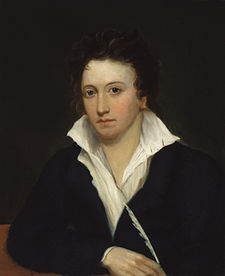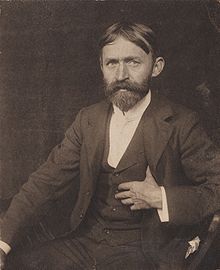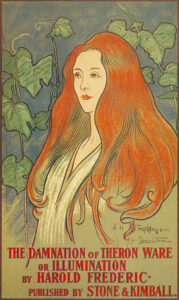Dear Zazie,
About your latest note; is your newest mission in life to ensure that I have no breath left?
Here is today’s Lovers’ Chronicle from Mac Tag. What dreams come for you? Rhett
The Lovers’ Chronicle
Dear Muse,
© copyright 2020 mac tag/cowboy coleridge all rights reserved
© copyright 2019 mac tag/cowboy coleridge all rights reserved
you stand there
leanin’ in the doorway
the settin’ sun shinin’
through the side door
silhouettes your shapely legs
through the thin material
of your dress
damn you look good
you hold a bowl in one hand
and a spoon in the other,
hummin’ and hungrily
spoonin’ from the bowl
i see a sly grin break out
it is obvious you feel good
and your mood engulfs me
you finish eatin’
and set the bowl
on the counter
then you see me,
that i have been watchin’
you turn to face me
no words are needed
© copyright 2018 mac tag/cowboy coleridge all rights reserved
in a quiet way
i ask
you answer
with your eyes
i draw you near
we move together
an immortal dance
we ask the world to wait
no seasons for us,
no night, nor morn
fresh showers fall upon us
we swim in seas and streams
we pass through the sky
over shores and mountains
we change, we laugh, we become
we rise at first light to build again
© copyright 2017 mac tag/cowboy Coleridge all rights reserved
Another long one. Another for the lack thereof. Another for the Dark Muse. This one was inspired by French poet and philosopher Paul Valéry‘s poem, “The Graveyard by the Sea”. The title inspiration came from a line in Hamlet’s To be, or not to be soliloquy from Shakespeare’s play Hamlet. Searching for the Song of the Day I came across a novel that I have added to my books to read list, What Dreams May Come by Richard Matheson. The novel was made into a movie in 1998 starring Robin Williams, Cuba Gooding, Jr. and Annabella Sciorra. What dreams sustain. What dreams deliver from reality. I lived my dreams. Now I live for……
What Dreams May Come
This quiet place, where dreams this way come…
On the mesa they lie, mute against time
Impartial clouds pattern the valley floor
That view and sky forever goin’ on
When wayward thoughts demand, how rewardin’
This long vista of calm lucidity
What grace of light, what pure words go to form
The manifest destiny of rhythm
What tranquil peace can be drawn from this source
When the sun rises on the horizon,
The air is sparklin’; dream is certainty
Pure reverie of an eternal cause
Sure treasure, simple shrine to forever,
Palpable calm, visceral reticence,
Proud-lidded eye, wonder wherein there wells
under desolation, such depth of sleep
Silence, mirrors in my soul, reflected
and cold, proof of myriad untold truths
Temple of time, in a brief sigh bounded,
to this rare height, flawed though I, and girted
by the horizons of a grief filled eye
And, like Her proposed supreme offerin’,
that coruscation ultimately breeds
a callous indifference in the sky
Even as the dread meanin’ is absorbed,
Even as within the mouth, words dyin’,
changin’ into doubt through dissolution,
So to my desultory soul declared
All breath transfigured into breathless air,
And breathe soon a final emanation
Beautiful dream, true dream, could I have changed
After such arrogance, after so much
idleness; strange, yet full of potency
Open to these silent searin’ spaces
Over sepulchral homes, shadow passes,
Soul laid bare to a midnight damnation
Apparition appears; spirit subdues
An impartial light admired and yet feared,
whose attraction is merciless, and yearns
to pull back, to the original place
Look at the light; but to look does imply
no less a somber moiety of shade
For myself, deep down within, wonderin’
at the quick, the poem’s holy fount, between
the void and this pure power, I beseech
the intimations of a secret proof
Sensual, dark, and eternal reserve
Depths deceptively beyond mortal reach
But know you, protector of the beyond,
gulf which casts up Her forbidden passion,
secret which dazzles so, through eyes wide shut
What body drags to its lingerin’ end
What mind draws it to this bone-covered ground
A star broods there on all that I have lost
Closed, hallowed, full of insubstantial fire
Morsel of truth to hope given over
This poem, ruled by it’s flambeaux, pleases so
A place all cold, stone, and dark wood, shudders
so much, surrounded, so many shadows:
The tombs, asleep, on the faithful prairie
Keep away those who were not forgiven
A solitary with the cowboy’s smile
Roundup and pasture long the mysteries,
The snow-white herd of the long undisturbed
Drive far away from here the righteous ones,
the vain daydreams, those with questionin’ eyes
Now understood; never is a long time
The brittle words founder on the dry wind
All burnt up, used up, drawn up in the air
to some ineffably altered answer
Life enlarged, drunk with annihilation
And bitterness is sweet, the spirit clear
They lie easy, hidden away, silent
All their mysteries released on the wind
Motionless hour, thoughts aloft in the blue
Brood on and on; a self-deluded theme
For all that was done, must accept as is
Unbounded words and perfect description
I am what’s changin’ secretly in you
I am the only outlet for your fears
Penitence, doubts, debauched desires
These are the flaws within divided pride
But in the heavy night, ensconced in stone
Uncover the truth behind her shadow
Slowly come over to the other side
To a cold impervious what may come
For the truth has swallowed the deception
Into evermore the gift of life, passed
The personal grace, the soul now preserved
Dust and wind now swirlin’ where tears once fell
Sharp, ardent cries of those whom love once teased
The eyes, furtive glances, moistly closin’
The pretty touch that gambles with the flame
The crimson blood shinin’; willin’ lips yield
The last gift, and the flesh tremblin’ and hot
All gone to hereafter, back whence it came
Great soul, does hope yet lie waitin’ somewhere
To find some dream without the lyin’ eyes
That wave on wave offers to stir desire
Sighin’ still when but in a thin cold air
But all perishes; things of flesh and bone
As is, divine impatience also dies
Lurkin’ immortality, allurin’
Laurelled consoler scary to behold,
Death is a womb, a mother’s breast, she feigns
The fine illusion, damn the pious trick
Who does not know, and who is not made ill
That empty skull, that everlastin’ grin
Way deep down there, derelict, despondent
Whom such a weight of regret overspreads
Who directs so, in whose steps all is lost
Real soul devourer, unanswerable
Not for all that sleep under the torment
Life is his meat, and flesh is still his host
‘Love, ‘ shall it be said? or, ‘Hatred of self’
Her secret truth so intimate with me
That any name would suit her well enough
Enough that she can see, will, entice, touch
My flesh delights her, under her caress
Livin’ but as a morsel of her life
Warrior poet, cruel philosopher
Pierces then with arrow after arrow
that hum, reverberate, too late to flee
The pure pain givin’ life, the arrow thrills
Only the sun; shadows to overcome
Soul, giant strides left standin’ and waitin’
Now, the future futility unfolds
Shattered memories, meditation’s mold
To drink in the wind’s revivin’, or not
A freshness, exhalation of the plains,
Restores souls with life-breathin’ potency
To run at the wind, hurled back to livin’
Mighty wind with such wild frenzies gifted
Her hair, sifted, shines in the mountain sun
All over, images, her skin glistens,
Creature supreme, drunk on her ardent flesh
In a tumult like the deepest passion
Bite at her quiverin’ curvaceous curves
The wind is risin’; consummation looms
A huge sigh overwhelms, pleasure consumes
Words explode out with a surgin’ exhale
So, here among the silent departed,
the final step taken in this journey
Here in this quiet place, what dreams may come
© copyright 2013 Cowboy Coleridge mac tag All rights reserved
The Song of the Day is “What Dreams May Come” by Ennio Morricone. We do not own the rights to this song. All rights reserved by the rightful owner. No copyright infringement intended.
On this day in 1693 – the date traditionally ascribed to French Benedictine monk, Dom Perignon‘s invention of champagne. It is not clear whether he actually invented champagne, however he has been credited as an innovator who developed the techniques used to perfect sparkling wine. Muse; take me back to the time and place when we….
Drank a bottle
of Veuve Clicquot
Danced naked
in the mountain rain
Made love again
and again
And gave not a damn
for awhile
© copyright 2014 mac tag all rights reserved
| Percy Bysshe Shelley | |
|---|---|

Portrait of Shelley, by Alfred Clint (1819)
|
|
Today is the birthday of Percy Bysshe Shelley (Field Place, Horsham, Sussex; 4 August 1792 – 8 July 1822 Gulf of La Spezia, Kingdom of Sardinia); Romantic poet. In my opinion, among the finest lyric, as well as epic, poets in the English language. A radical in his poetry as well as in his political and social views, Shelley did not see fame during his lifetime, but recognition for his poetry grew steadily following his death. Shelley was a key member of a close circle of visionary poets and writers that included Lord Byron; Leigh Hunt; Thomas Love Peacock; and his own second wife, Mary Shelley, the author of Frankenstein. Perhaps best known for such classic poems as Ozymandias, Ode to the West Wind, To a Skylark, Music, When Soft Voices Die, The Cloud and The Masque of Anarchy. His other major works include a groundbreaking verse drama The Cenci (1819) and long, visionary poems such as Queen Mab (later reworked as The Daemon of the World), Alastor, The Revolt of Islam, Adonaïs, Prometheus Unbound (1820), Hellas: A Lyrical Drama (1821), and his final, unfinished work, The Triumph of Life (1822).
Four months after being expelled from Oxford, on 28 August 1811, the 19-year-old Shelley eloped to Scotland with the 16-year-old Harriet Westbrook, a pupil at the same boarding school as Shelley’s sisters, whom his father had forbidden him to see. Harriet had been writing Shelley passionate letters threatening to kill herself because of her unhappiness at the school and at home. Shelley, heartbroken after the failure of his romance with his cousin, Harriet Grove, cut off from his mother and sisters, and convinced he had not long to live, impulsively decided to rescue Harriet Westbrook.
Shelley was also at this time increasingly involved in an intense platonic relationship with Elizabeth Hitchener, a 28-year-old unmarried schoolteacher of advanced views, with whom he had been corresponding. Hitchener, whom Shelley called the “sister of my soul” and “my second self”, became his muse and confidante in the writing of his philosophical poem Queen Mab, a Utopian allegory.
Shelley became increasingly unhappy in his marriage to Harriet and particularly resented the influence of her older sister Eliza. Shelley accused Harriet of having married him for his money. Craving more intellectual female companionship, he began spending more time away from home, among other things, studying Italian with Cornelia Turner and visiting the home and bookshop of William Godwin. Eliza and Harriet moved back with their parents.
On 28 July 1814, Shelley abandoned Harriet, now pregnant with their son Charles (November 1814 – 1826) and (in imitation of the hero of one of Godwin’s novels) he ran away to Switzerland with Mary, then 16, inviting her stepsister Claire Clairmont (also 16) along because she could speak French. The older sister Fanny was left behind, to her great dismay, for she, too, had fallen in love with Shelley. The three sailed to Europe, and made their way across France to Switzerland on foot, reading aloud from the works of Rousseau, Shakespeare, and Mary’s mother, Mary Wollstonecraft (an account of their travels was subsequently published by the Shelleys). Sigh…
After Shelley and Mary’s return to England, Fanny, despondent over her exclusion from the Shelley household and perhaps unhappy at being omitted from Shelley’s will, travelled from Godwin’s household in London to kill herself in Wales in early October. On 10 December 1816, the body of Shelley’s estranged wife Harriet was found in an advanced state of pregnancy, drowned in the Serpentine in Hyde Park, London. Shelley had made generous provision for Harriet and their children in his will and had paid her a monthly allowance. It is thought that Harriet, who had left her children with her sister Eliza and had been living alone under the name of Harriet Smith, mistakenly believed herself to have been abandoned by her new lover, 36-year-old Lieutenant Colonel Christopher Maxwell, who had been deployed abroad, after a landlady refused to forward his letters to her. On 30 December 1816, barely three weeks after Harriet’s body was recovered, Shelley and Mary Godwin were married. The marriage was intended partly to help secure Shelley’s custody of his children by Harriet and partly to placate Godwin, who had coldly refused to speak to his daughter for two years, and who now received the couple. The courts, however, awarded custody of Shelley and Harriet’s children to foster parents, on the grounds that Shelley was an atheist.
Song: Rarely, Rarely, Comest Thou (1821)
- Rarely, rarely, comest thou,
Spirit of Delight!
Wherefore hast thou left me now
Many a day and night?
Many a weary night and day
‘Tis since thou are fled away.- St. 1.
- Let me set my mournful ditty
To a merry measure;
Thou wilt never come for pity,
Thou wilt come for pleasure;
Pity then will cut away
Those cruel wings, and thou wilt stay.- St. 4.
- I love tranquil solitude,
And such society
As is quiet, wise, and good;
Between thee and me
What difference? but thou dost possess
The things I seek, not love them less.- St. 7.
- I love Love — though he has wings,
And like light can flee,
But above all other things,
Spirit, I love thee —
Thou art love and life! Oh come,
Make once more my heart thy home.- St. 8.

-

Landscape, Branchville, c. 1888, 152.4 × 203.2 cm.
-

Wild Cherry Tree, oil on canvas, c. 1901. Albright-Knox Art Gallery
-

Fishing Boats at Gloucester, 1901. Smithsonian Museum of American Art
Mac Tag
Follow us on twitter @cowboycoleridge



No Comments on "The Lovers’ Chronicle 4 August – rise – verse by Shelley – art by John Henry Twatchman"